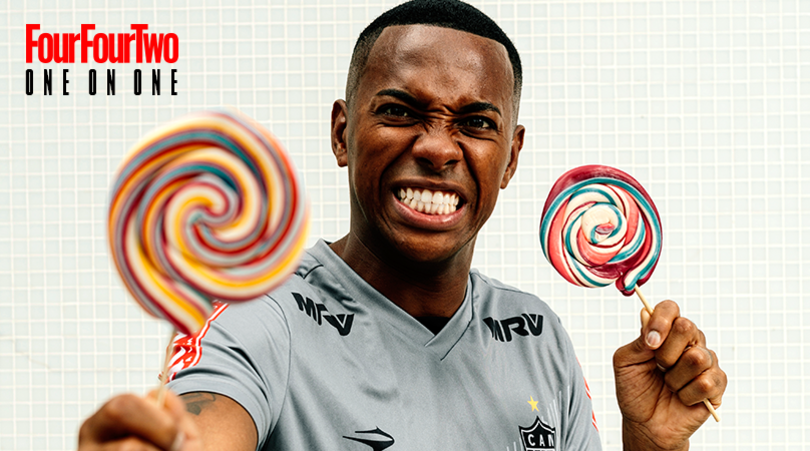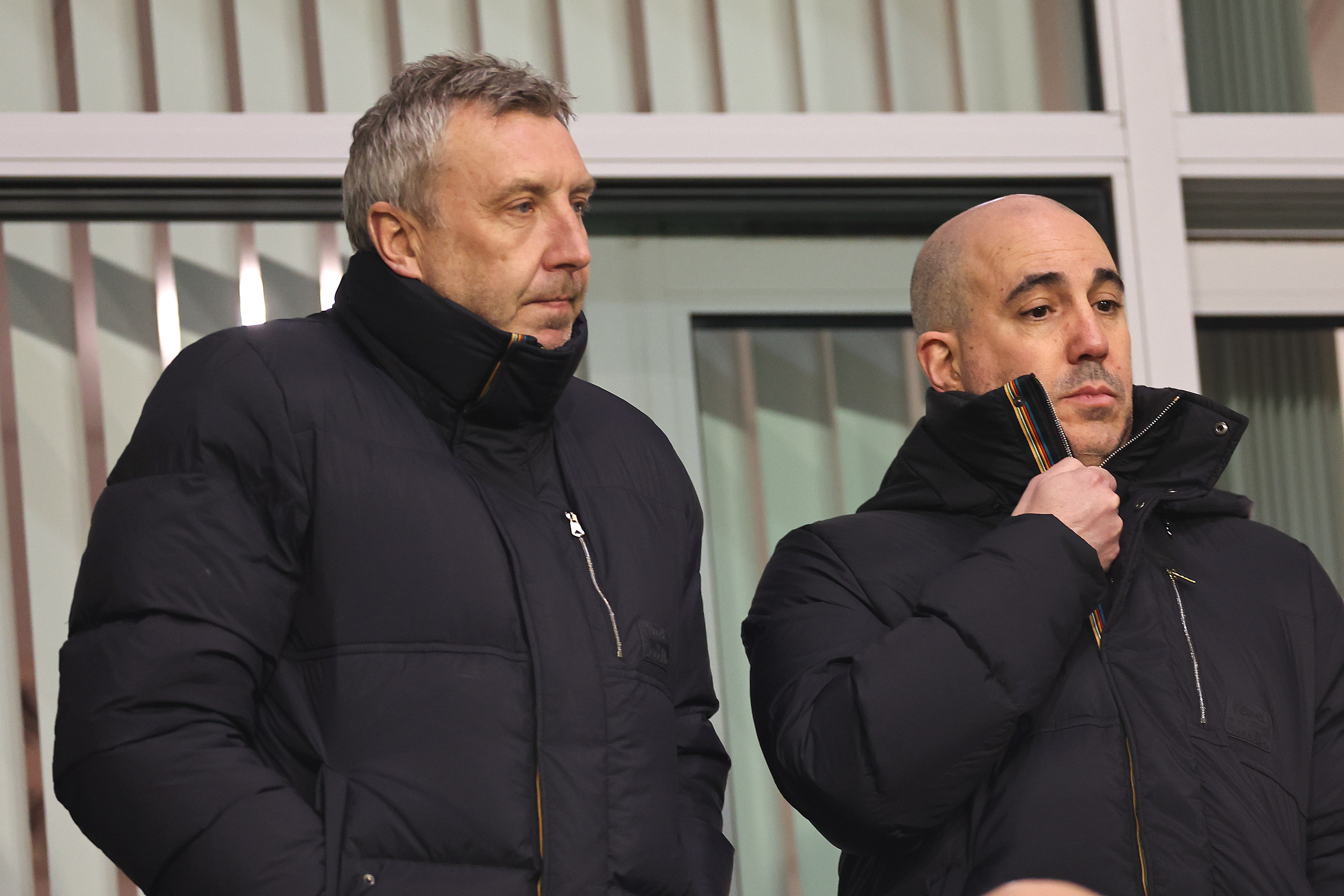Pep Guardiola now knows what he must do to succeed at Manchester City
The Catalan's first season will be labelled a disappointment, but Mike Holden reckons the manager now understands the crucial culture change he needs to undertake
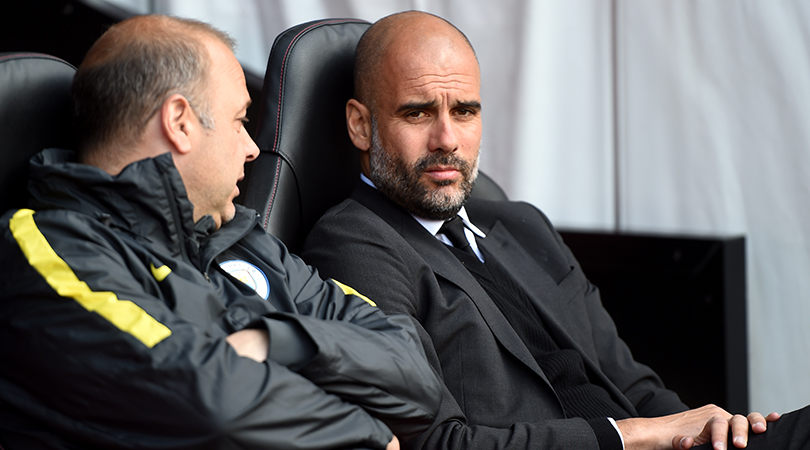
The best features, fun and footballing quizzes, straight to your inbox every week.
You are now subscribed
Your newsletter sign-up was successful
Want to add more newsletters?
Join the club
Get full access to premium articles, exclusive features and a growing list of member rewards.
If Pep Guardiola didn’t fully appreciate the subtleties of how a season with Manchester City might differ from one at Barcelona or Bayern Munich, he does now.
When you’re working with players unaccustomed to winning trophies on a regular basis, the requirements for success go way beyond the realms of an over-riding philosophy or game-by-game tactical strategy - no matter how good the information is.
The Sky Blues have dominated play to an extreme that the Premier League has never witnessed before
In essence, the football City have played this season is barely any different to Guardiola’s beginnings at the Camp Nou and Allianz Arena. The Sky Blues have dominated play to an extreme that the Premier League has never witnessed before. They’re on course to become the first team to average more than 60% possession over 38 games, exceeding the previous highest recorded figure by almost 2%.
But the outcome, and thereby the overall impression, has been starkly different. With five weeks of the campaign to spare, City already know they will be trophyless and most probably outside the top two, while their participation in next season’s Champions League remains anything but a forgone conclusion.
The devil can be found in what Guardiola refers to as "the details", meaning the decisions made in both penalty boxes. City’s problem is one of mentality.
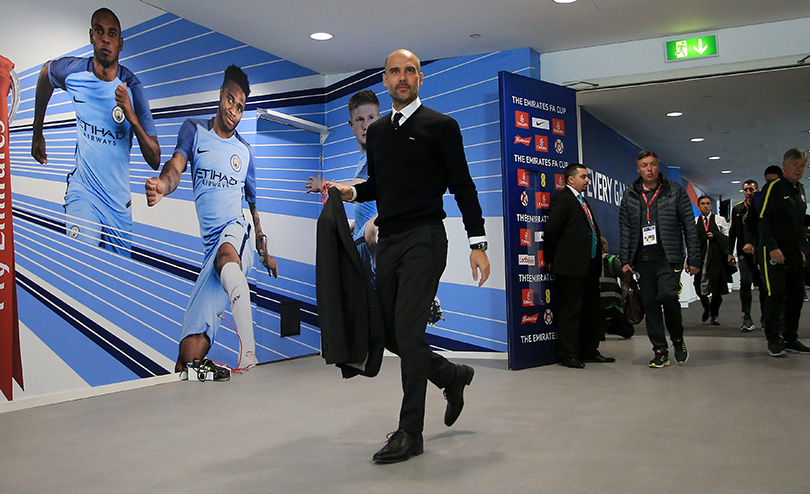
City in a parallel universe
The difference between success and failure is Kevin De Bruyne hitting the underside of the crossbar from two yards out against Chelsea. It’s not defending a routine inswinging free-kick late on against Monaco. It’s hitting the woodwork twice in the second half of normal time against Arsenal. The same thing keeps happening, usually when it matters most, and City keep being punished.
The best features, fun and footballing quizzes, straight to your inbox every week.
In a parallel universe, everyone is smiling. City seized upon those critical, game-changing moments and took charge of their own destiny. In that world, they are currently top of the table, neck and neck with Chelsea, whom they will face in the FA Cup final, and the biggest dilemma now facing Guardiola is how to rotate his squad for the run-in around a blockbuster Champions League semi-final tie with Juventus.
The principal difference here is the background of the players he is working with and the psyche of the club he is working for
It’s not that absurd. Guardiola has encountered variations of this scenario at this stage in five out of his previous seven seasons. The principal difference here is the background of the players he is working with and the psyche of the club he is working for.
For City fans, the FA Cup semi-final defeat to Arsenal last weekend followed a painfully familiar pattern. Blinding chinks of light had pierced through in a thoroughly impressive 3-0 win at Southampton the weekend before and belief had come surging back.
The team were in good shape, key players were returning to full fitness and barely anybody who made the trip down to Wembley could conceive the idea that City might lose to an Arsenal side against whom they had completed the rare feat of coming from behind to beat when at a particularly low ebb last December.
Yes, the officials were bad, Arsenal were dirty and losing David Silva to injury in the opening quarter was a blow. And yes, of course, the combined efforts of Sergio Aguero and Raheem Sterling to put the ball across the line in the first half should have resulted in a goal.
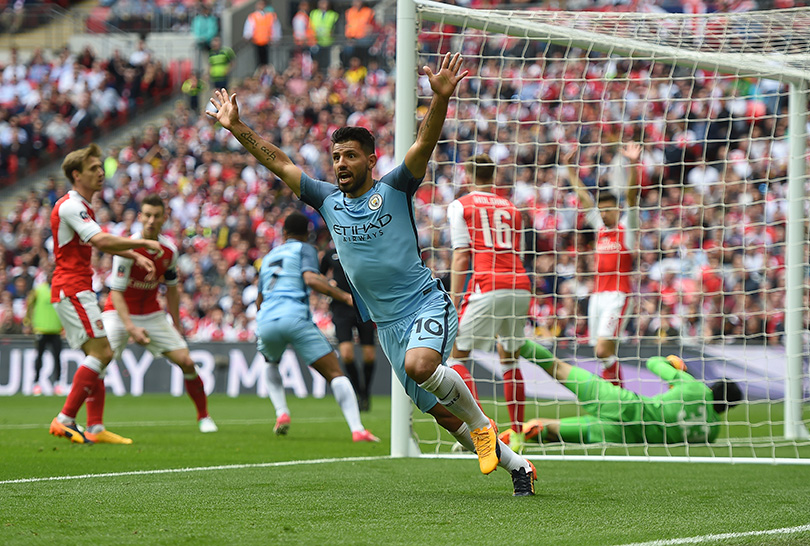
Yet, in spite of that tough luck, every City fan still believed the game was theirs to win. The frustration that followed, in many cases amounting to hysterical accusations of FA conspiracies, is merely displacement from a reality that is much more difficult to stomach.
A self-fulfilling prophecy
To serial winners, adversity is empowering. Bad decisions, losing key players, going behind - these are all opportunities to reinforce your supremacy and remind everyone of an undisputable pecking order. They are hurdles to be overcome. The bigger the stage, the better.
Every time you dig out a victory against the odds, it stores as a reaffirming memory to draw upon in the future whenever the going gets tough. Becoming a team that never knows when it’s beaten is a self-fulfilling prophecy that makes your players, the opposition and, yes, even referees, gravitate towards the same inevitable outcome, time after time.
When the mentality isn’t right and players perform without total conviction - be that conviction in the game plan, the habit of killing teams off when on top, or rolling with the punches and navigating any bad breaks that occur - then small details become a big problem. The difference between what should occur and what actually does is vast.
For City, this pattern of underachievement is nothing new. It was a problem that surfaced in the first Premier League title defence, under Roberto Mancini, which he was never afforded the opportunity to resolve. And it only became more prominent the longer Manuel Pellegrini was at the helm.
Now Guardiola has laid bare City’s biggest weakness in his first season, simply by subjecting the players to the same standards he imposed in his previous jobs. He has pushed the team to the brink of their capabilities and found them to be sufficiently talented. But whenever they come face to face with destiny, they allow fate or misfortune to stand in their way. They choke.
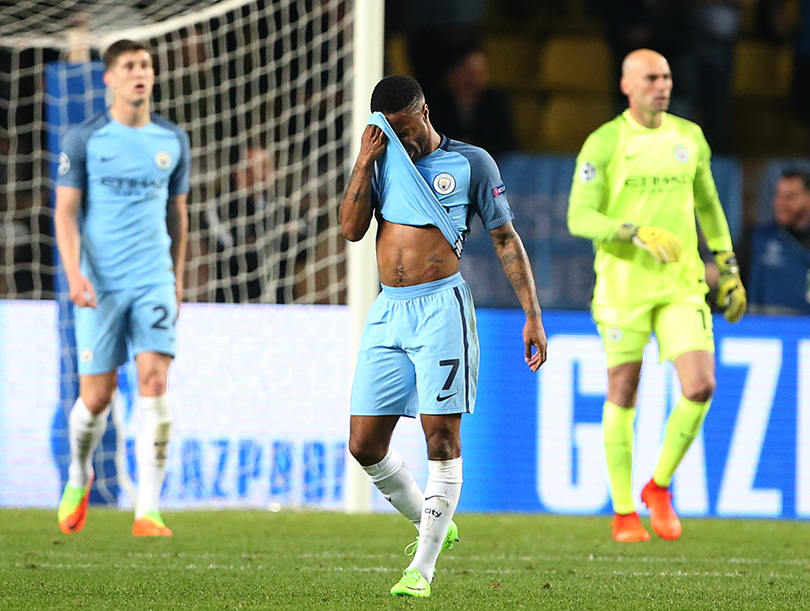
Over the past five seasons, no team in the country has won more games or collected more points than City. They’ve seen more of the ball than any other team, created the most chances and scored the most goals. Yet of the last 15 domestic trophies available, they’ve lifted only three.
Aguero’s late impact
One argument might be that the problem stems from the emotions generated by Sergio Aguero’s iconic stoppage-time winner against QPR in May 2012. The level of closure experienced by anyone whose association with the club pre-dated 2008 was extraordinary, and it would appear the players have since allowed themselves to be infected by the inevitable sense of gratitude.
It would appear the players have since allowed themselves to be infected by the inevitable sense of gratitude
And why wouldn’t they? You only have to look around the dressing room for survivors from that remarkable day and remember where those players came from: Vincent Kompany (Hamburg), Aleksandar Kolarov (Lazio), Pablo Zabaleta (Espanyol), Silva (Valencia), Aguero (Atletico Madrid, pre-Simeone).
Normally, when players at arrive at an elite club from such outposts, they must survive an intimidating initiation process in uber-masculine surroundings, whereby their credibility remains under the microscope until, eventually, they absorb the inherent dressing room culture through osmosis.
At the Etihad, these players have had to create that culture themselves from scratch, initially aided and abetted by Mancini with his notoriously combustible training sessions. Since the Italian’s departure, their edge has gradually diminished.
Five years on, Yaya Toure (Barcelona) remains the only player who came to the club preconfigured with that divine-right mentality, and it’s hardly a coincidence that he has been the driving force behind all of City’s biggest breakthroughs during the Sheikh Mansour era.
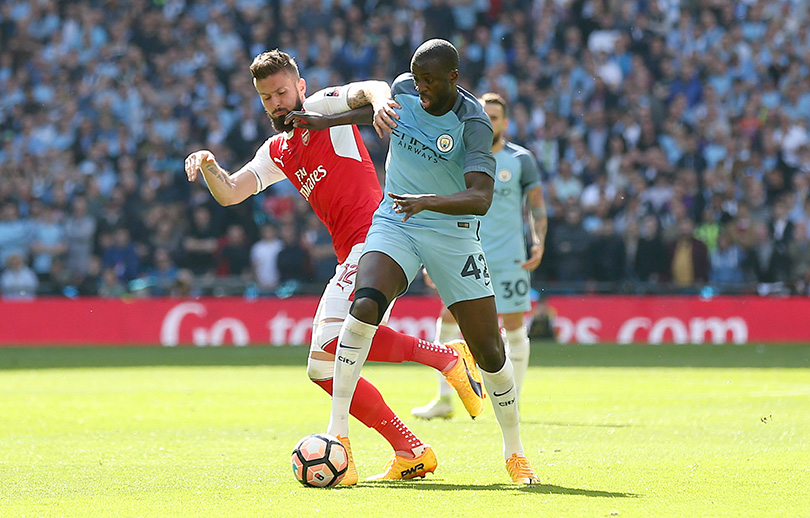
Once again, on his favourite stage last weekend, it was Toure - and Toure alone - grabbing the bull by the horns, showing unrivalled determination to alter the course of the game.
Judging by some of Guardiola’s recent comments, he is acutely aware of the problem and has been trying to guard against it - in words if not deeds. Positive reinforcement has been a theme of his recent media briefings, particularly since the return leg in Monaco, where an abject first-half display appeared to be his defining moment of clarity.
In terms of his tactical preparation, though, the approach remains uncompromising.
Breaking Pep
Some City fans, with typical gallows humour, joke that "breaking Guardiola" will prove to be the club’s all-time greatest achievement. In the fullness of time, though, his first season might well be remembered as the season when he broke City in order to conduct a full audit and establish the discrepancy between where the club is and where it wants to be.
If that proves to be the case, this season has been an essential part of the process as significant as any of his previous seven.
It’s a psychological issue that must be addressed by changing the culture and reshaping the psyche of the club. City must learn how to become serial winners
In just nine months, Guardiola's high-risk strategies and intolerance of half-measures have pushed the players into scenarios where, at critical moments, they find themselves with nowhere to hide. And it has left the root of the problem laid bare.
The question now is how he goes about correcting a problem that isn’t quantifiable. Mental toughness cannot be measured in numbers and revisited periodically for signs of progress, and when you’re Guardiola, it cannot be swerved by a change of philosophy. It’s a psychological issue that must be addressed by changing the culture and reshaping the psyche of the club. City must learn how to become serial winners.
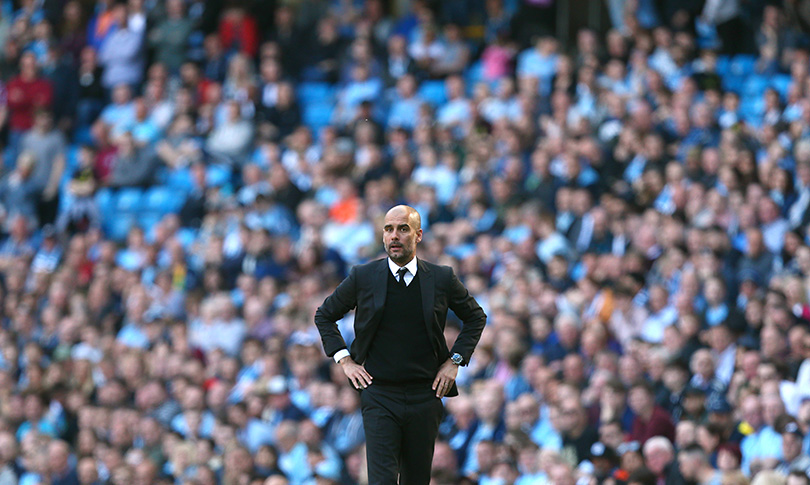
The easy way to address that, of course, is to bring in serial winners from elsewhere, and big casualties in the summer cannot be ruled out. However, tabloid media reports that Guardiola will open a blank chequebook and make sweeping changes to get what he wants are probably wide of the mark. One or two big-game players, with whom the Catalan has a prior connection, might be as far as it goes.
Wholesale changes would be a waste of education, time and resources, especially for a manager who operates in short stints at such high intensity.
The players Guardiola currently has at his disposal should all benefit enormously from their first year under his tuition - much more than their transfer market value would acknowledge - and any replacements would be 12 months behind in their understanding of his language.
So, essentially, City’s future most probably remains with the same core of players that have come up short this year. The biggest difference might be that next season, the young guns - John Stones, De Bruyne, Sterling, Leroy Sane and Gabriel Jesus - will be encouraged to surpass the elder statesmen upon whom City have relied for so long.
 Join The Club
Join The Club










